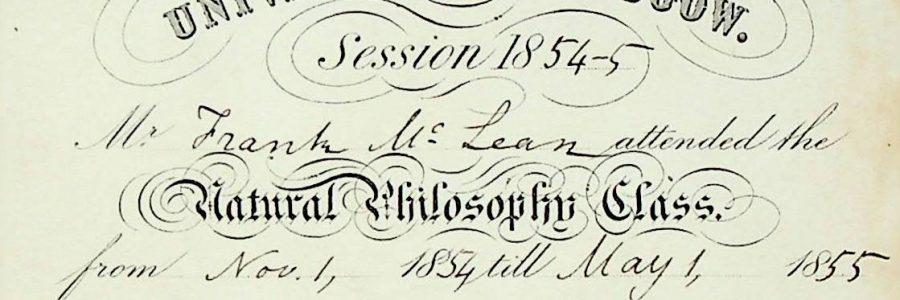
Recent acquisition: papers of Frank McClean, astronomer and educational benefactor
A small collection of papers relating to the engineer and astronomer Frank McClean (1837-1904) have recently been acquired by Cambridge University Library. The papers comprise two student notebooks covering McClean’s studies at the University of Glasgow under William Thomson, Lord Kelvin, and at Trinity College, Cambridge, as well as family correspondence, pocket diaries, correspondence with contemporary scientists and astronomers, a small number of family photographs and material relating to McClean’s death. Much of the family correspondence comprises letters sent between 1900 and 1902 to William Newsome McClean, one of Frank McClean’s sons, then serving in South Africa in the Second Boer War.
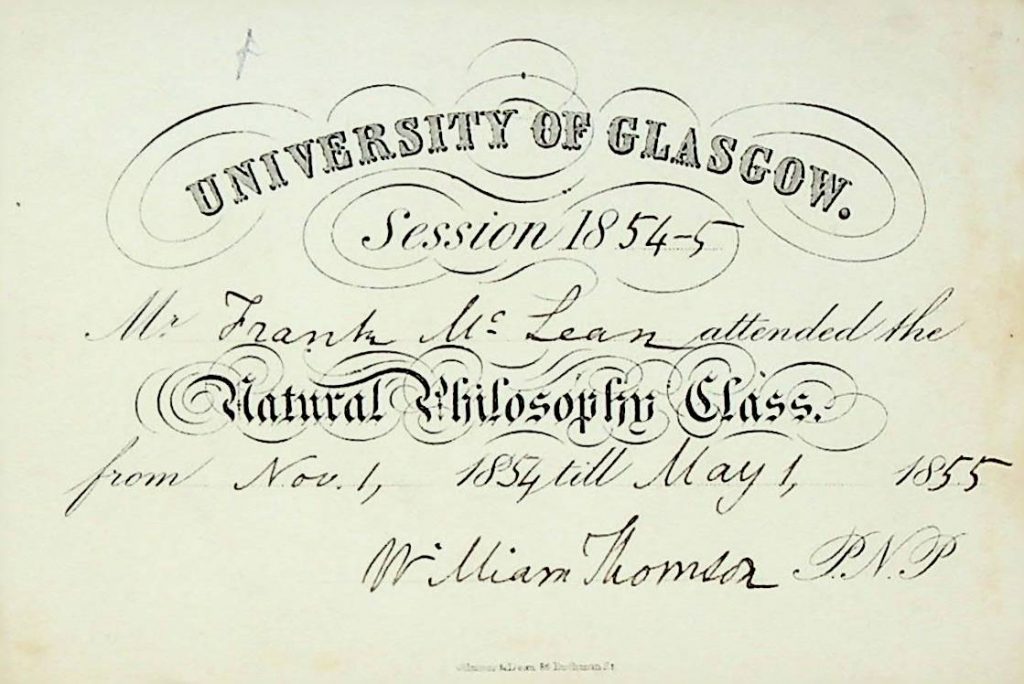
A colourful character, Frank McClean was the only son of the renowned Belfast-born civil engineer John Robinson McClean (1813-1873). After his university studies, McClean worked under Sir John Hawkshaw on drainage improvements in the Fens before joining his father’s firm, McClean & Stileman. Having come into a substantial sum of money, he retired from the firm in 1870 and pursued an active interest in astronomy. He built an observatory at Ferncliffe near Tunbridge Wells and began researching stellar spectra and solar prominences, later installing a Grubb photovisual refractor as one of the earliest pioneers of objective prism spectrography. His surveys of stars in the northern and southern hemisphere were published in Philosophical Transactions of the Royal Society and led to the award of the Royal Astronomical Society’s gold medal in 1899.
I am only taking a step that seems to me absolutely necessary to make my life a contented one.
Frank McClean to his father, 1870, on giving up a career in engineering (MS Add.10348/5/1)
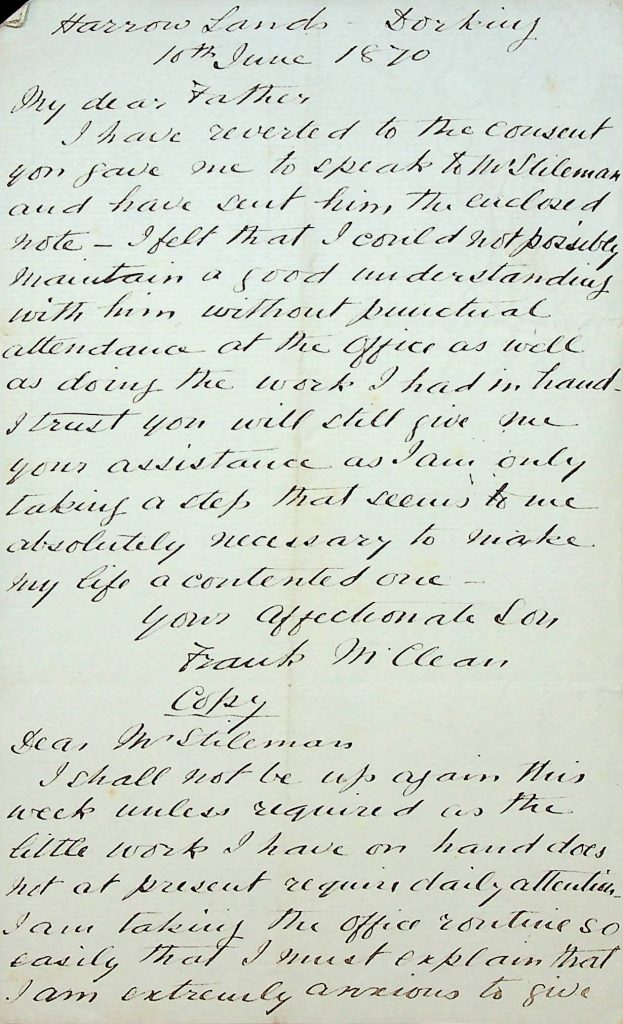
In later life, McClean was a notable benefactor and champion of astronomical education. He established three Isaac Newton scholarships and supplemented the existing stipends for the Stokes and Cayley mathematical lectureships at the University of Cambridge. There were further bequests in his will, including a significant donation of illuminated manuscripts and printed books to the Fitzwilliam Museum in Cambridge. McClean also offered his equipment and telescope to the Royal Observatory in the Cape of Good Hope.
McClean’s notebook from Lord Kelvin’s Natural Philosophy class at Glasgow, 1854-5, is an undoubted highlight of this collection. Kelvin was elected to the chair of Natural Philosophy in 1846 and over the course of his 50-year professorship developed the class into one of international renown. In particular, Kelvin transformed the physical space of the classroom into an experimental laboratory and expanded research in thermodynamics, electricity and telegraphy. Alongside McClean’s notes is an attendance card for the year signed by Kelvin. A second notebook in the collection covers part of McClean’s time at Cambridge in 1858, with notes and diagrams on optics and geometry. McClean was placed twenty-seventh wrangler in 1859.
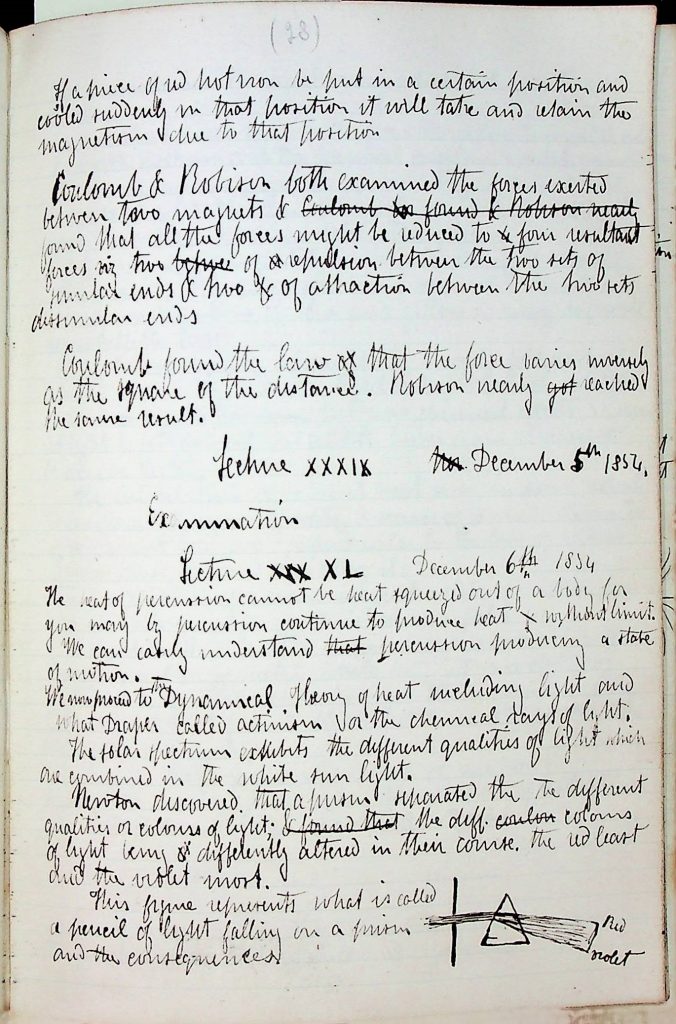
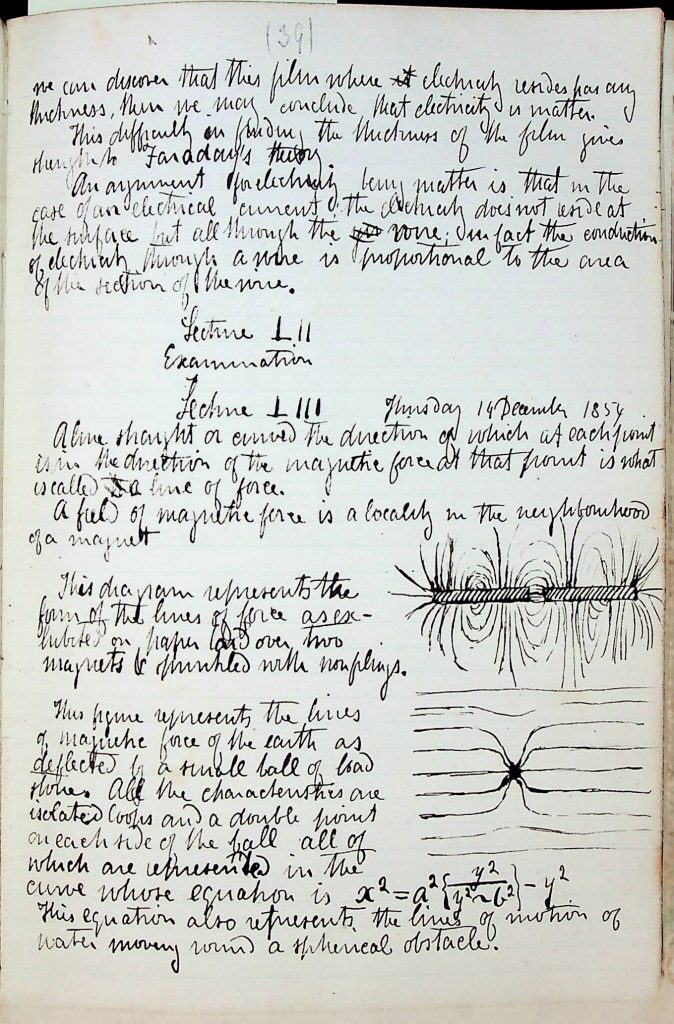
Also of significance is a series of scientific correspondence, mostly dating from the 1890s and relating to McClean’s spectra photographs. Correspondents include the astronomers Charles Piazzi Smyth, Edward Singleton Holden, Jacobus Kapteyn and William Huggins, the optical designer Howard Grubb, and the engineers James Nasmyth and Horace Darwin.
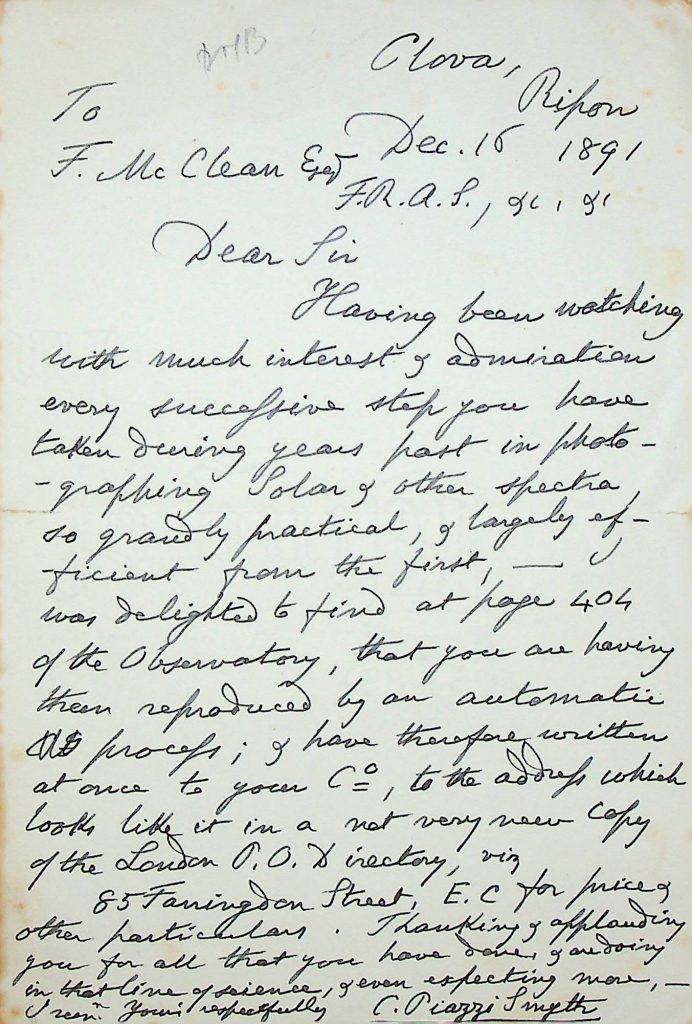
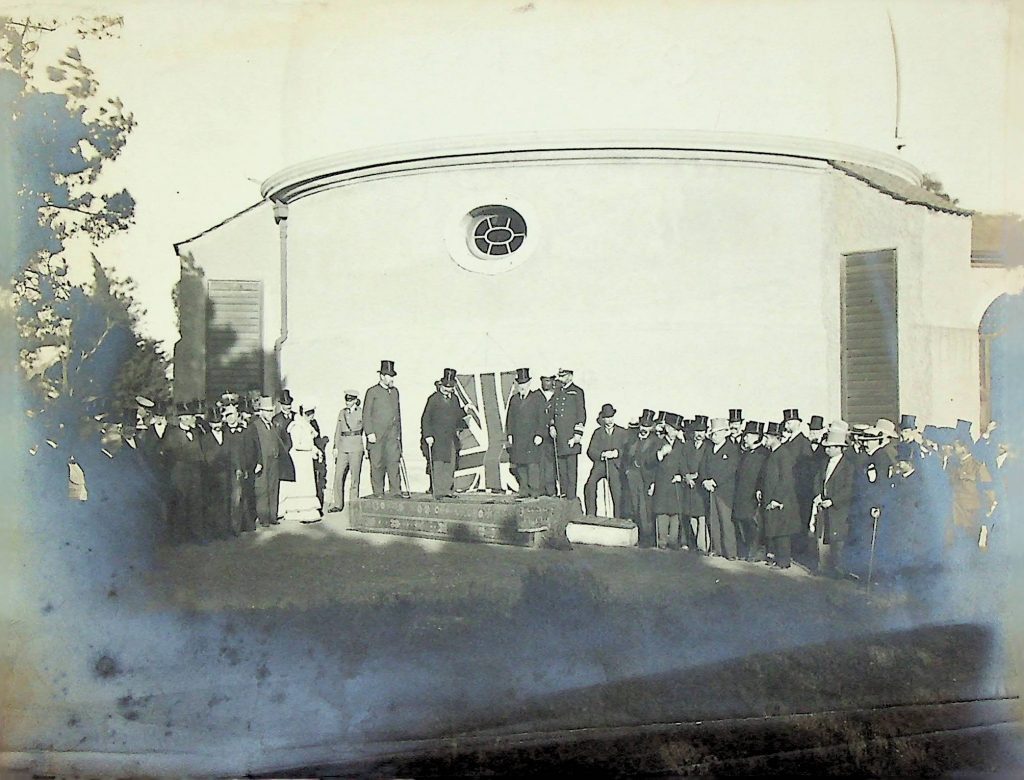
A catalogue of the Frank McClean papers is now available on ArchiveSearch and the material can be consulted in Cambridge University Library’s Special Collections Reading Room. The papers of William Thomson, Lord Kelvin, are also held at Cambridge University Library.
